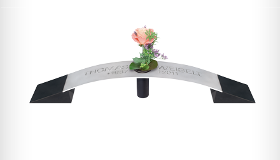What does it mean to lose someone you love?
Death, loss and coping with grief
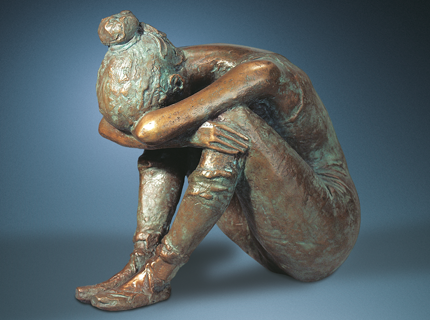
The mystery and meaning of death for human beings
Some people say that death only came into existence when humankind became self-aware. In other words: death has a more real meaning for humans than for any other living creature because we are the only ones that know about it. The ever-constant threat of death prevents us, as humans, from leading questionable, tedious lives. And yet every death is a unique event.
Most people’s lives are shaped by various types of separations: separation from a great love, from a great passion, from power or simply from money. We have to separate ourselves from wishes and expectations and bury them so that we can begin something new. So what remains? Hope, faith and memories.
Although death is ever-present in today’s media, we barely talk about this painful subject. Many people are afraid of death and avoid even thinking about it for as long as humanly possible. Consequently it can be even harder to handle the grief when a death occurs in their close circle. They feel more helpless than ever before.
-
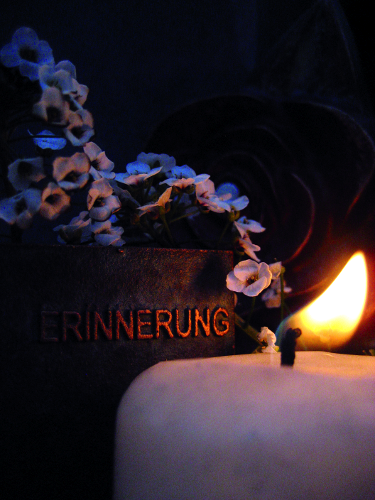
Human beings are aware of death and yet they still avoid talking about it.
Rituals and symbols help in times of grief
-
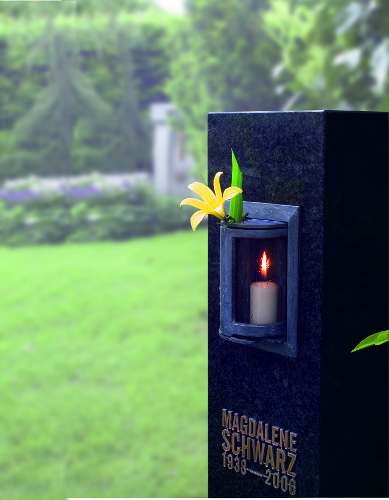
Lighting a candle at a grave is a comforting ritual for mourners.
Since the beginning of time, mourning rituals and symbols have helped people deal with the loss of a loved one. At that point, we start thinking about ourselves - whether we have made the right decisions in life - and looking for meaning in life and death. In essence, the search for immortality was and is the search for the proper ritual. The efforts to search for what we need to do to ensure that we live on after we die. Symbolism and rituals help people find their way in this time of uncertainty, and learn to embrace it.
Symbols are important means of communication and reduce complexity. For example, you can take two pieces of wood, cross them over and express the core belief in Christianity. A wink is just as much a symbol as a nod, handshake or raised fist. There are secular and religious symbols, and they are everywhere. They are elementary forms of expression for human beings.
Mourning rituals, such as lighting a candle or leaving flowers on graves, help those left behind to cope with their grief. Repeating rituals provides security and safety.
Individual ways of coping with grief
Death and grieving are very personal and emotional subjects. They often go hand-in-hand with speechlessness, suppression and fear. When we confront bereavement we are placed into a situation for which most people are not prepared. We lack the energy to deal with authorities, cemetery design guidelines and funeral arrangements, where we do not even know whether we are allowed to change or modify them. But everyone deals with grief in their own way - and they must be granted the time and space to do so.
"Memory is the only paradise from which we cannot be cast out."Jean Paul
-
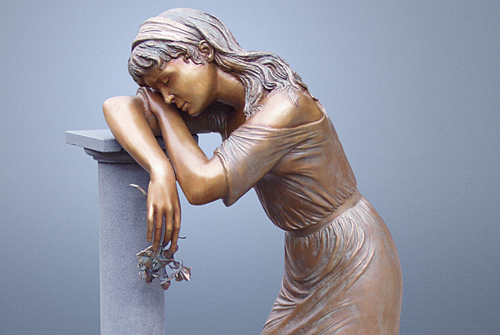
Everyone has to find their own way of processing their grief.
Those left behind have a right to express their wishes in terms of design and creativity, should they wish to do so. Choosing a headstone at the cemetery should not be the first step in this process. It is this express desire for individuality that is giving rise to new rituals, as well as reviving old ones.
Decisions taken at the start of the period of grieving can have a long-term impact. Cemetery owners and funeral directors must learn to deal with mourners sensitively and with empathy. It is essential to also take into account those needs that the mourner might not know how to express in their grief and helplessness.
